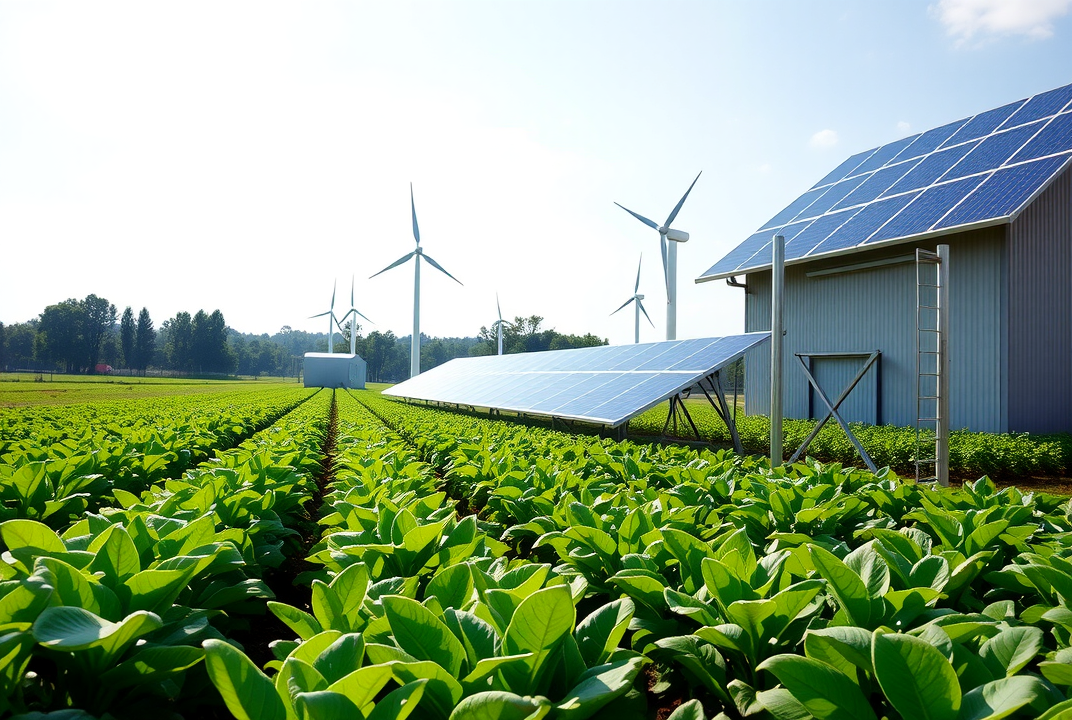Analyzing Market Trends: Embracing the Rise of Sustainable Agriculture

The New Face of Farming: Sustainable Agriculture's Rising Influence
Sustainable agriculture is no longer a fringe movement but a significant trend shaping markets worldwide. With growing consumer awareness about environmental conservation and food safety, sustainable agricultural practices are becoming a necessity.
This article will explore how sustainable agriculture is influencing market trends and why it matters to businesses and consumers alike.
What is Sustainable Agriculture?
In simple terms, sustainable agriculture refers to farming practices that maintain productivity while conserving natural resources and minimizing environmental impact. It encompasses a variety of methods such as crop rotation, organic farming, and the use of natural pest control techniques.
Why is this important? Traditional farming methods often lead to soil degradation, increased carbon emissions, and reduced biodiversity. Sustainable practices aim to mitigate these issues by promoting environmentally friendly methods that preserve the ecosystem.
Driving Forces Behind the Trend
Consumer Awareness
Today's consumers are keenly aware of what goes into their food and where it comes from. They are more than ever willing to pay a premium for products labeled as organic or eco-friendly. According to research, the global organic food market is expected to grow substantially in the next decade, driven by consumer preference for natural products.
Government Policies
Many governments are implementing policies to support sustainable agriculture. Subsidies for organic farmers, tax incentives, and stricter regulations on chemical use are encouraging a shift towards greener practices. These policies not only support farmers but also help protect the environment by regulating the use of harmful chemicals.
The Economic Impact of Sustainable Farming
Cost Considerations
While initial investments in sustainable practices can be high, they often lead to cost savings in the long term. By enhancing soil health and reducing reliance on synthetic inputs, farmers can see increased yields and lower operating costs.
Market Opportunities
Sustainably produced goods often fetch higher prices in markets, appealing to consumers willing to invest in quality and ethical sourcing. Farmers engaging in sustainable practices may find new market opportunities both locally and internationally as the demand for organic and ethically-produced products expands.
Challenges in Transitioning to Sustainable Agriculture
Technical Challenges
Many farmers face technical challenges when transitioning to sustainable practices. This includes knowledge gaps in organic farming techniques, limited access to eco-friendly inputs, and a lack of infrastructure for distribution and marketing of organic products.
Financial Barriers
Transitioning to sustainable agriculture can require substantial financial investment. While many countries offer incentives, the initial costs can still be prohibitive for small-scale farmers. However, innovative financing models and cooperative partnerships are emerging to support farmers during this transition.
Future of Sustainable Agriculture
Technological Innovations
The advent of smart farming technologies is providing new tools for sustainable agriculture. Drones, sensors, and data analytics enable precise monitoring of crop health and soil conditions, helping farmers make informed decisions that align with sustainable practices.
Collaborative Efforts
Collaboration between agricultural stakeholders, governments, and NGOs is crucial for the promotion of sustainable agriculture. Collective efforts can lead to more effective policy advocacy and resource allocation, benefiting both producers and consumers.
Conclusion: Embracing a Sustainable Future
The rise of sustainable agriculture represents a shift not only in farming practices but also in market dynamics. It is more than a trend—it's a necessary evolution towards a more responsible and environmentally conscious approach to agriculture.
To realize the benefits of sustainable agriculture, businesses and consumers must continue to support eco-friendly practices and demand transparency. This aligns with the global path toward environmental conservation and sustainable food production.
In embracing this trend, we can collectively contribute to a healthier planet, ensuring that future generations have access to safe, nutritious, and responsibly-sourced food.